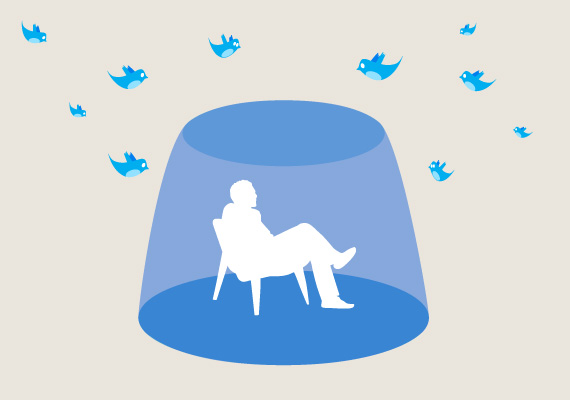What Happened To Downtime? The Extinction Of Deep Thinking And Sacred Space
BY THE 99 PERCENT
Interruption-free space is sacred. Yet, in the digital era we live in, we are losing hold of the few sacred spaces that remain untouched by email, the Internet, people, and other forms of distraction. Our cars now have mobile phone integration and a thousand satellite radio stations. When walking from one place to another, we have our devices streaming data from dozens of sources. Even at our bedside, we now have our iPads with heaps of digital apps and the world's information at our fingertips.
There has been much discussion about the value of the "creative pause"--a state described as "the shift from being fully engaged in a creative activity to being passively engaged, or the shift to being disengaged altogether." This phenomenon is the seed of the break-through "a-ha!" moments that people so frequently report having in the shower. In these moments, you are completely isolated, and your mind is able to wander and churn big questions without interruption.
However, despite the incredible power and potential of sacred spaces, they are quickly becoming extinct. We are depriving ourselves of every opportunity for disconnection. And our imaginations suffer the consequences.
Why do we crave distraction over downtime?
Why do we give up our sacred space so easily? Because space is scary. During these temporary voids of distraction, our minds return to the uncertainty and fears that plague all of us. To escape this chasm of self-doubt and unanswered questions, you tune into all of the activity and data for reassurance.
But this desperate need for constant connection and stimulation is not a modern problem. I would argue that we have always sought a state of constant connection from the dawn of time, it's just never been possible until now.
The need to be connected is, in fact, very basic in Maslow's hierarchy of needs, the psychological theory that explains the largest and most fundamental human desires. Our need for a sense of belonging comes right after physical safety. We thrive on friendship, family, and the constant affirmation of our existence and relevance. Our self-esteem is largely a product of our interactions with others.
It is now possible to always feel loved and cared for, thanks to the efficiency of our "comment walls" on Facebook and seamless connection with everyone we've ever known. Your confidence and self-esteem can quickly be reassured by checking your number of "followers" on Twitter or the number of "likes" garnered by your photographs and blog posts. The traction you are getting in your projects, or with your business, can now be measured and reported in real time.
Our insatiable need to tune into information--at the expense of savoring our downtime--is a form of "work" (something I call "insecurity work") that we do to reassure ourselves.
So what's the solution? How do we reclaim our sacred spaces?
Soon enough, planes, trains, subways, and, yes, showers will offer the option of staying connected. Knowing that we cannot rely on spaces that force us to unplug to survive much longer, we must be proactive in creating these spaces for ourselves. And when we have a precious opportunity to NOT be connected, we should develop the capacity to use it and protect it.
For more leadership coverage, follow us on LinkedIn or check out these recent stories fromFast Company:
No comments:
Post a Comment